The Future of Irish Food Is Hiding in Rural Pubs
Chefs are bringing daring cuisine to centuries-old pubs in remote corners of Ireland.
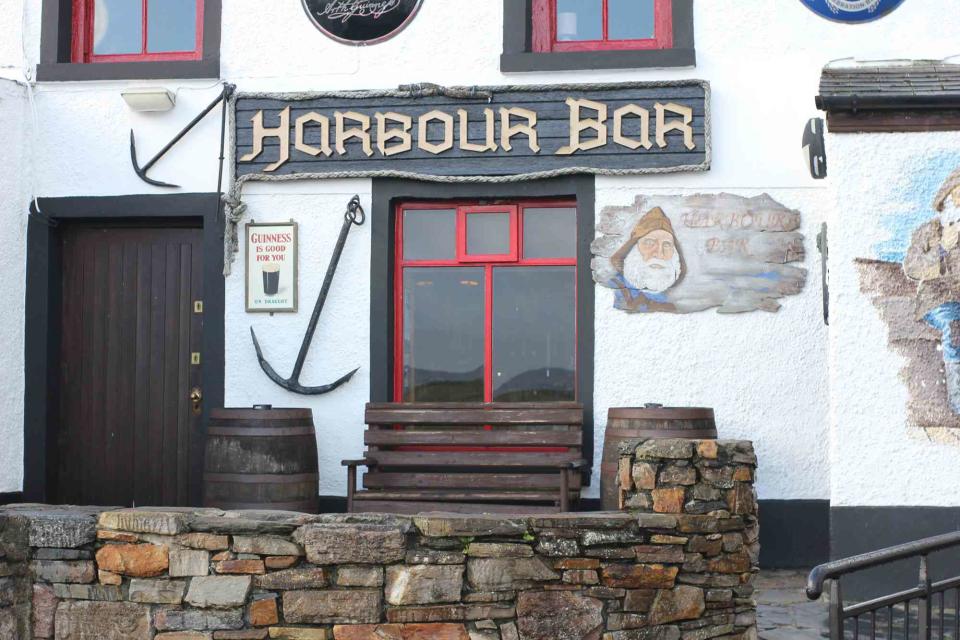
Courtesy of Fisk Seafood Bar Downings
After many years spent in Irish pubs, I can’t help but eavesdrop when I hear certain phrases. If an Irish person says something “has legs” (potential, merit, one-to-watch) — lean in. You want to hear who, what, or where has legs. Over a pint in Dublin recently, the “what” in question was a pub in County Donegal, where an Irish chef who's worked in Ireland’s top Michelin-rated restaurants was now cooking, drawing food lovers to an old pub in a rural corner on the northern coast. It’s impossible to get a booking. I was intrigued.
But I was not surprised. After all, what city dweller in the last few years hasn’t dreamed of dropping everything and moving to the country? Would a pandemic push a chef to think that maybe they’ve had enough of the city, the late-late nights, and the Instagram set with their phones and ring lights? When a chef starts to think beyond the confines of city trends, what do they want to cook, and where?
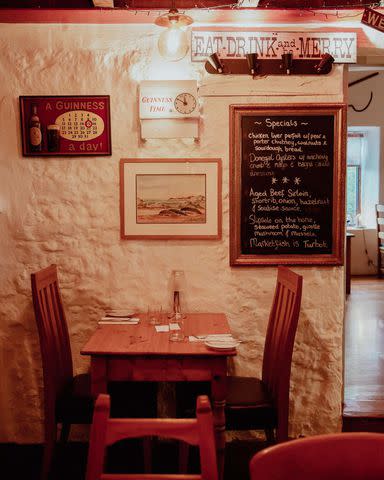
Courtesy of The Olde Glen Bar
The answer, for some Irish chefs, lies in the remote corners of the island. These coastal locales offer many things Dublin does not: direct access to and relationships with local producers, from farmers to seafood purveyors; much lower costs on every aspect of running their business; space for their families to grow. But maybe most important, beyond improved work-life balance, is that a break from the city offers chefs the breathing room to define their cooking on their own terms.
Related:You Can Dine in a Former Orient Express Train Car in Coastal Ireland
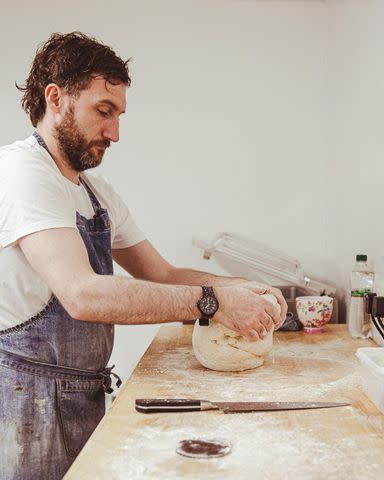
Courtesy of The Olde Glen Bar
Chef Ciaran Sweeney is a native of Downings, County Donegal, a seaside village once thought of as a seasonal destination. Chefs like Sweeney are changing that, drawing hungry visitors beyond the summer months. You’ll find Sweeney at The Olde Glen Bar, a pub that dates back to 1768, located a 10-minute drive inland from Downings. It has low ceilings, worn wood everywhere, and hazy golden lighting. Walk in and you smell the aroma of burning turf and hear the sound of creaky floors. Depending on the day and hour, a fiddler might be playing by the fireplace. When asked what drew him to the Olde Glen, Sweeney simply stated: “The building tells a story.”
And the Irish are natural storytellers. Sweeney tells his stories in the restaurant hidden away behind the pub, where the ceiling opens up and a long room offers glimpses into a modern, open kitchen. One of the most popular ways to begin a meal here is with Sweeney’s fermented potato bread served with bacon mousse and a smoky, sour cabbage. Familiar Irish ingredients are reimagined, but with a touch of nostalgia. Sweeney aims to cook food that makes sense in its surroundings, and this dish connects back to one of his earliest memories.
“My grandmother made potato bread; here it’s called fadge, on a hot skillet,” Sweeney told me. “It was always finished with butter, blackened on the outside, fluffy on the inside.” On a warm summer night, conversation halted as his version of the dish arrived at my table; we wiped clean every morsel.
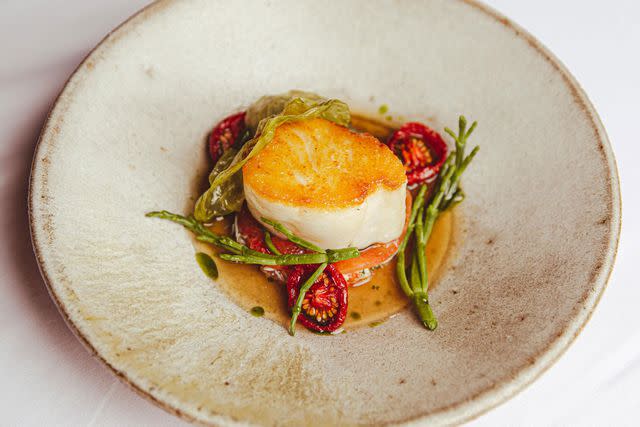
Courtesy of The Olde Glen Bar
Related:How to Plot Your Next Whiskey Pilgrimage
When you drive four hours from Dublin to the coast, it would be a crime not to indulge in Donegal’s seafood. Crab, scallops, oysters, lobster, whole fish — these arrive straight from the clean, cold Atlantic waters to the Olde Glen. Fish is smoked, roasted whole, salted, topped with anchovy crumb, stuffed inside ravioli, and more by Sweeney and his team. Roast Mulroy scallops with lemon puree may be the single most sublime bite I’ve eaten in Ireland, and I've spent over 15 years of combing the coastline for the best seafood.
“We’re getting the grá (love) back into it, cooking good honest food; that’s our buzz,” Sweeney said. Modest and charming, he’s also quick to point out that any success is largely due to the stellar quality of his ingredients, from local purveyors like Friel Seafood and Ballyholey Farm. At the Olde Glen, the diner moves closer to the source of the ingredients, rather than the opposite, and the result is extraordinary.
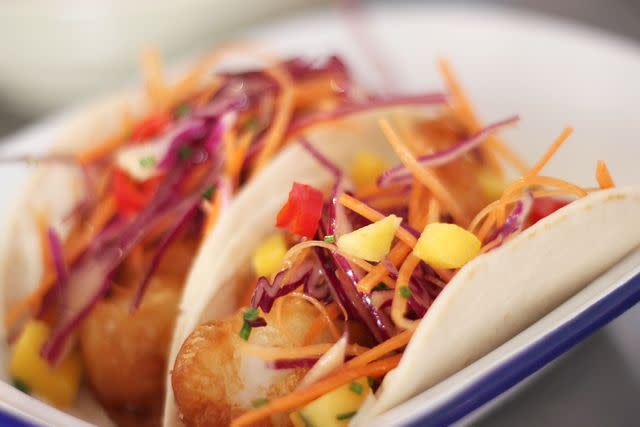
Courtesy of Fisk Seafood Bar Downings
In Ireland, you sometimes hear that country pubs are on the decline. That the tightening of drunk driving laws was the first nail in the coffin, and the second was Covid. Some rural pubs shuttered during the pandemic and never reopened. But chefs like Sweeney are bringing a new sensibility back to their native villages, reviving communities with year-round jobs and drawing people around their tables beyond the peak summer season. It’s a compelling formula, and one that hopefully continues to inspire other Irish chefs that they, too, can open profitable businesses in surprising locations.
Related:11 Unique Barrel-Finished Irish Whiskeys to Drink Right Now
In the village of Downings, County Donegal, The Harbour Bar is a traditional pub known for Guinness with an ocean view. A little building at the side of the pub is now home to Fisk, a cozy restaurant serving more of Donegal’s incredible seafood. In addition to cooking for its own customers, Fisk also serves those at the Harbour Bar, expanding their covers per night. This also keeps butts in bar stools once hunger strikes; why go anywhere when crispy oysters, mackerel paté, and big bowls of local mussels with ‘nduja and fennel can be brought right to you? It’s a win/win for both businesses, local fishermen, and bar patrons.
Does seafood taste better overlooking the sea, or in a remote dining room where you’ve traveled hours to eat, eyes wide in anticipation and stomach growling when you finally arrive? I think so, but you’ll need to follow Ireland’s chefs to the edges of the island to find out for yourself.
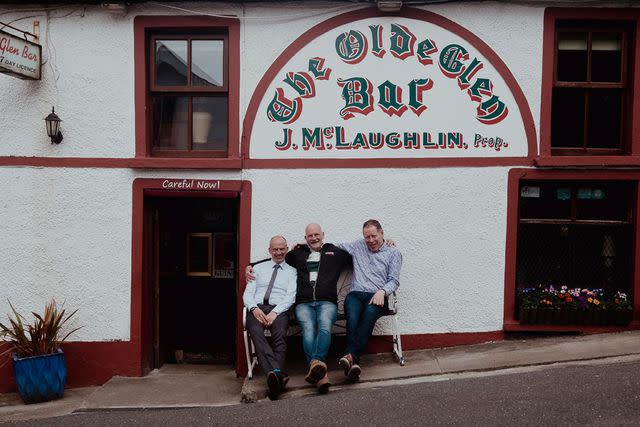
Courtesy of The Olde Glen Bar
More food worth traveling beyond Dublin for
Lignum, County Galway: For cooking over fire.
The Wild Honey Inn, County Clare: A country inn with a Michelin star.
Dede, County Cork: Turkish heritage meets Irish ingredients.
Pota, County Galway: An Irish-language café serving breakfast and lunch.
DK Connemara Oysters, County Galway: Taste oysters at the source.
Fish and Bean, County Sligo: Seafood and sea views.

